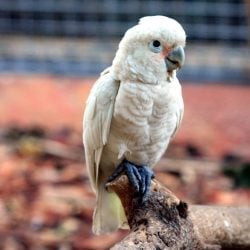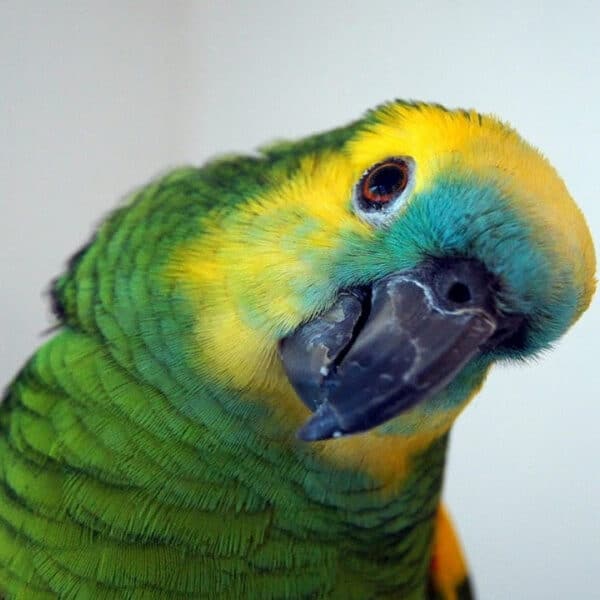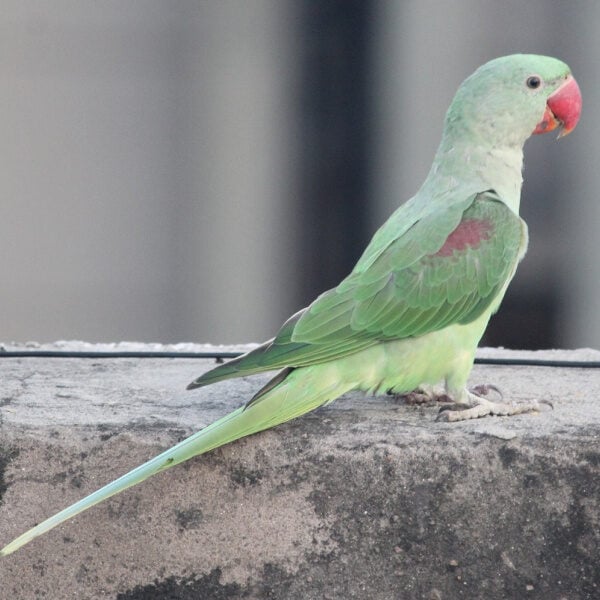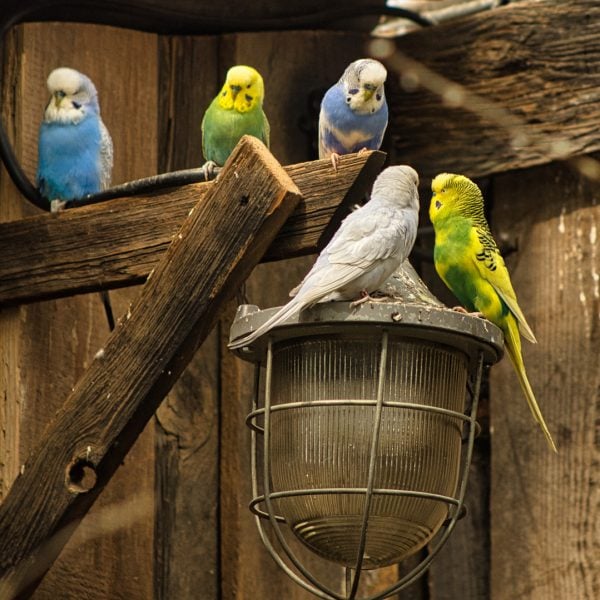Last Updated on by Mitch Rezman
Most birds that we find in our homes come from the equatorial regions of Earth. There’s a large difference in temperature between the Midwestern United States and South American rain forest. Aside from maintaining your bird’s optimal physical health during the winter, climate changes are counterintuitive to your bird and can be stressful.
Having a humidistat near your bird’s cage gives you an idea of the relative humidity your birds experiencing. Winter (depending upon your geography) and the resultant heating process in your home guarantee a dry environment.
This can be offset by keeping a humidifier near the cage (unless you have a whole house humidifier), and making sure your bird gets a bath of some sort. It can be a spray mist or a romp in the sink or shower. For smaller birds keeping a birdbath in the cage with just enough water, they could get their chest wet is really all that’s necessary.
Birds are creatures of habit and will establish a comfort zone in their cage and when the environment changes they can react poorly. Make sure the birdcage is not in the path of any cold drafts. A bird that is exposed to waves of cold air can have a severely detrimental impact on the bird’s system. The heat source is important. In that a person’s anatomy is in a large part lung, heat sources that emit fumes should be avoided. Kerosene, space heaters with exposed heating elements, and wood-burning fireplaces all can pose a risk to your birds by impeding your bird’s respiratory system.
Equatorial animals are accustomed to 12 hours of light and 12 hours of darkness year-round. In the northern hemisphere, sunrise and sunset are ever-changing from season to season. This confuses the bird and can once again cause stress, brooding, and egg-laying activities out of the norm. Thus keeping a full spectrum light near your birds cage with the timer that makes the light go on before sunset and turn off between eight and 10 at night will do more than just make your bird’s feathers shine.
A diverse nutritional diet is even more important in the winter as your bird is stressed by light, temperature, and humidity fluctuations. This can cause shifts in your bird’s metabolism. It’s important if to be feeding your bird more than just seeds in the winter. Make sure you introduce fresh fruits, vegetables, and or engineered food in the form of the pelleted diet.
When photo periods change in the wild (days and nights becoming longer and shorter) birds will shed their feathers. The process is called molting. A natural mold replaces broken feathers and those that have worn out. Un-natural molting or as many people refer to it as feather plucking can be a result of stress by your bird not understanding its personal climate shifts. Feather plucking is an entirely different subject to be covered in a later time but can be caused not only by stress but by parasites (mites), bacterial infections, the seeking of attention and affection and in many cases just plain boredom.
In closing, be vigilant seeking visible signs of illness. Things to look for are changes in your bird’s poop. Fluffed-out feathers for prolonged periods of time can indicate a problem with their lungs and may conceal weight loss. If you see a discharge, inflammation or redness coming from the Cere (what we call the bird’s nose – the strip with the nostrils above the beak), or the eyes. The eyes may turn cloudy. These both could be an indication of a serious illness.
Last but certainly not least because we know birds have a very high metabolism they should be eating like clockwork. Birds begin to lose weight when they stop eating. This can be caused by stress or be assigned to some sort of compromised intestine. By keeping your bird cage cleaned daily, you’ll more easily monitor food intake in changes in their poop.
Mitch Rezman
Author Profile

Latest entries
 Bird & Parrot CareJune 20, 2025Understanding the Best Way to Use Prevue Pets Mimic Me Voice Trainer
Bird & Parrot CareJune 20, 2025Understanding the Best Way to Use Prevue Pets Mimic Me Voice Trainer Bird BehaviorJune 6, 2025How Do I Keep My Parrot From Dumping His Food Every Day?
Bird BehaviorJune 6, 2025How Do I Keep My Parrot From Dumping His Food Every Day? Birds & LightingMay 16, 2025I Am Seeking Clarity About Lighting for My Birds Cage
Birds & LightingMay 16, 2025I Am Seeking Clarity About Lighting for My Birds Cage Bird RescueApril 29, 2025How Do We Re-Home a 17 yr Goffin Cockatoo?
Bird RescueApril 29, 2025How Do We Re-Home a 17 yr Goffin Cockatoo?




